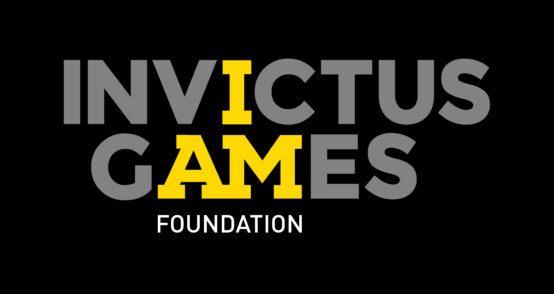Competitors in the Invictus Games Sydney 2018 experienced greater positive impacts on their wellbeing compared to non-competitors, according to new research funded by Forces in Mind Trust.
The research highlighted the importance of the “between Games” activities to maintain health and wellbeing levels and found that the strategies that provide the most benefit were centred more on mental fitness skills and resilience training than on sports development.
Research during the preparations for the Invictus Games The Hague 2020 found that adapted sports, such as virtual cycling, continued to provide community and resilience training that underpinned rehabilitation during the COVID-19 pandemic.
The evaluation of Invictus Games competitors – who are all wounded injured or sick serving or former personnel was carried out by an international collaboration of academic researchers including Imperial College London.
The report was launched at the IGF Conversation, as part of the Invictus Games Foundation’s 10th Anniversary celebrations.
Lead Researcher, Dr Celina Shirazipour, Assistant Professor at Cedar Sinai Medical Centre, said: “This research really highlighted for me the importance of focusing on mental skills alongside building in training for the day after the Invictus Games, not just the Games themselves. I think this will have an impact on the way that sport is viewed in recovery, by using it as a catalyst alongside developing life skills and mental skills.
“These findings could be used to develop tools that can support improved training of coaching, program development, participant experiences and well-being outcomes. Ultimately improving the quality of programming and outcomes.”
Dominic Reid OBE, Chief Executive Officer, Invictus Games Foundation, said: “We are delighted to share this report after a long time in the making. We are grateful to Forces in Mind Trust for supporting this work. And particularly for their flexibility in extending the report grant during the pandemic. The findings from that period certainly help paint a picture of how sport and esports kept the community together through their recovery at that time.
“These findings have been shared with our community of participating nations to develop ongoing programming. We are determined to continue building on the lessons learned to ensure that best practice is shared for the international wounded, injured and sick service personnel and veteran community. We’ve strengthened our provision of activity beyond the Games based on some of these findings. And we look forward to doing more in this space.”
Michelle Alston Chief Executive of Forces in Mind Trust, said: “Recognising the specific appropriate support wounded, injured and sick serving and former personnel require as they transition to civilian life is crucial. Competitive sports have helped many to recover and reclaim their identity beyond their injury. This research provides solid evidence that shows the benefits of these programmes, whilst providing valuable best practise and examples that will improve how we help Service personnel in the future.”

